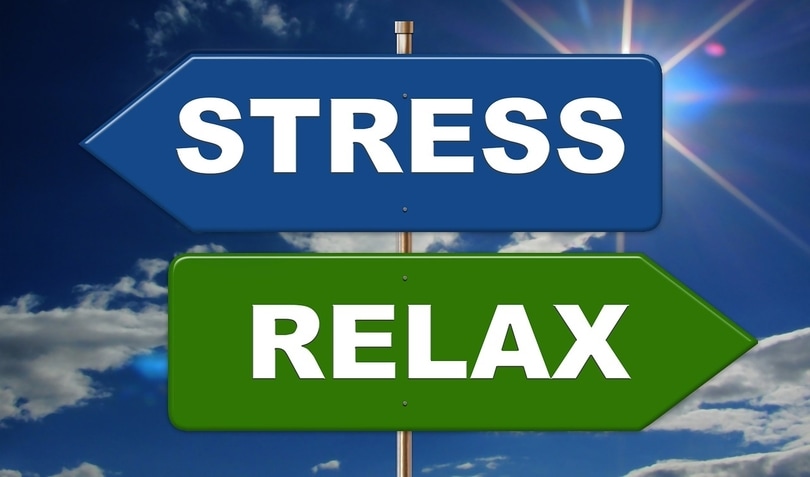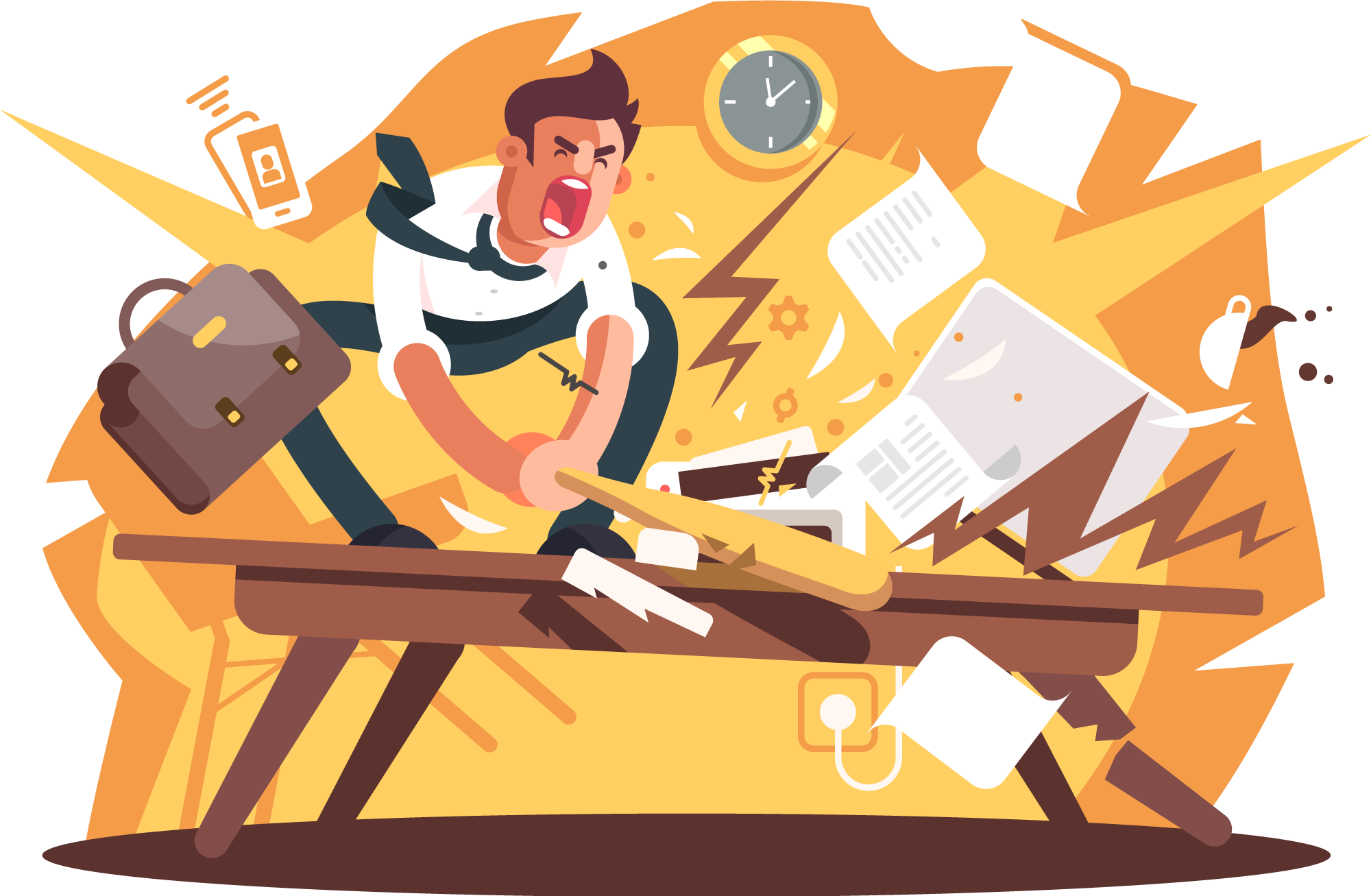Hello!
Work is a part of life, unless you’re already rich enough not to need to work. In that case, congratulations! But, in case you don’t fall into that category yet, you’re probably familiar with the concept of work becoming stressful.
For remote workers especially, stress feels like part of the deal. You get flexibility and convenience in exchange for increased stress. However, remote work doesn’t have to be as stressful as that. Every type of work has stress, but you can learn how to reduce and manage stress from working remotely.
Consider this a crash course in stress management for remote workers.
Understand What You’re Doing
 Stress for remote workers sometimes comes from the feeling of doing either way too much work or not nearly enough. You need to have a way to know which is the truth so you can address it appropriately.
Stress for remote workers sometimes comes from the feeling of doing either way too much work or not nearly enough. You need to have a way to know which is the truth so you can address it appropriately.
Tracking your work doesn’t look the same for everyone. Work with your boss, team members, and others to develop a set of metrics and tools that can accurately track what you’re doing and how successfully you’re doing it.
When you’re setting up a new work tracking system, avoid getting overloaded by too many work performance metrics. Having too many tracking points can distract you from what actually matters and cause you to lose focus on forward progress.
Choose tracking metrics that make sense for the work you do. If you’re a writer, track how many words or projects you complete over a set period of time (daily, weekly, hourly…). If you do marketing, you can look at metrics that focus on the impact of your work, such as website sessions or lead conversion rates. Compare this to the hours you’re working each day on each activity to see if you’re getting a good ROI for your time.
If you’re not sure what metrics make sense for the type of work you do, start here first. The best way to know if you’re using your time wisely is to first get the data on how you’re using your workdays and the impact of your work.
With this information, you can organize your day to prioritize the most important activities and enforce your schedule by proving that you’re getting the results you need without the need to overwork yourself.
Plan Your Work Environment
 Working remotely means making a lot of choices on a daily basis, whether you mean to do it or not. One of these choices is where you’re physically going to be when you work. It may not seem like a big deal because you have the flexibility to work from anywhere, but this is misleading. If you don’t make a point to choose a specific place where you work, you end up working everywhere.
Working remotely means making a lot of choices on a daily basis, whether you mean to do it or not. One of these choices is where you’re physically going to be when you work. It may not seem like a big deal because you have the flexibility to work from anywhere, but this is misleading. If you don’t make a point to choose a specific place where you work, you end up working everywhere.
Your workspace doesn’t have to be a dedicated office. Those living with roommates (or small children…) or in tiny apartments may not be able to work in a quick, closed off space. While the atmosphere of your workspace does matter, it’s more important that you specify where you’re planning to work for the sake of boundaries.
If you have a regular workspace, you’re more likely to do your work while you’re there and to do other things when you’re elsewhere. Work at your desk, then watch movies on the couch.
Do work in your workspace, then be fully engaged with the rest of your life when you leave it and Manage effectively your daily working documents so you can access them easily and save time using document management tools. You can also use management tools like LinkedIn automation tools, facebook tools, project management tools for best results on time management.
Stop yourself if you ever find yourself engaging in these harmful behaviors:
- Answering work emails in bed
- Carrying your laptop everywhere just in case you need to work (inside or outside the house!)
- Trying to “work” while doing other things in the house, especially spending time with people
Remember, if you don’t choose your work environment purposefully, your entire home becomes your workspace.
Build Rituals into Your Workday
Part of why some people enjoy commuting to work is that it builds a daily work ritual. You wake up at a certain time in order to prepare and get on the road in time to reach work when you need to be there. Even leaving the office gives some closure to your workday. When you work remotely, you don’t have this same routine separating work and leisure and anchoring you to reality.
 Building daily rituals is up to you. You may not be required to commute to the office daily, but you can still build and maintain a daily routine. It looks different for everyone, but you can build something you can appreciate and continue.
Building daily rituals is up to you. You may not be required to commute to the office daily, but you can still build and maintain a daily routine. It looks different for everyone, but you can build something you can appreciate and continue.
Wake up at the same time every morning, follow a similar morning routine, then start work at a set time. When you’re finished with work, build an end of day ritual that replaces the commute home.
The purpose of these daily rituals is to help you get your mind in the right state when you think about working. Work isn’t everything, so it should never dominate your entire life. If you allow work to creep into every hour of your day by starting work early and ending late, you’re cutting out time for winding down and relaxing. This is a perfect recipe for stress.
One ritual that helps reduce stress for anyone is practicing disconnection. You live and work in a world that’s always connected. Set a time every day that you disconnect from the internet and people in general. Put down the phone, close your computer, and generally remove everything that ties you to your work. Binging on Netflix is allowed, as long as you remove the possibility of receiving notifications from email, Whatsapp, messages, etc.!
Equip Yourself Appropriately
Remote workers have a lot of different areas of stress. It’s part of the gig. However, one thing that’s often consistent across fields is stress from not having the right tech. In an office, the company hiring you furnishes the office with internet, computers, printers, phone lines, and whatever else is needed to do the work. As a remote worker, it’s your responsibility to be equipped. For example, you might need drawing software as a graphic designer or social media tools as a marketing executive.
 It’s not a problem that stresses you out at every minute. But, when you’re trying to have a call with your client and you keep getting interrupted by loud noises on the line, you feel the strain. So, when you find yourself reading GetVoIP’s guide to solving phone echoes within your call center software, you may start wishing for a regular office where this stuff is taken care of for you.
It’s not a problem that stresses you out at every minute. But, when you’re trying to have a call with your client and you keep getting interrupted by loud noises on the line, you feel the strain. So, when you find yourself reading GetVoIP’s guide to solving phone echoes within your call center software, you may start wishing for a regular office where this stuff is taken care of for you.
While tech is a big stressor, it’s something you can solve. The real stumbling block is changing your mentality to remember that you’re making an investment into your work. Paying for a faster internet connection or a new computer with the specs you need for your work isn’t wasteful.
Write down your tech needs plus a wish list you’d like to have as you grow. Then, work your budget magic. There’s no reason you should be lacking the equipment you need for your work. No more low-quality phones or slow broadband connections. Set yourself up for success and you’ll effectively eliminate (or at least minimize) this stressor.
Guard Your Time Off
When you’re working in an office, you have the ability to tell people that you’re not in the office and that you will pick up the work when you get back in. It’s something you might take for granted until you work remotely.
 Remote workers may have a home office or even a rented office space, but it’s harder for employers or clients to understand that you’re not in the office when they can’t see you there.
Remote workers may have a home office or even a rented office space, but it’s harder for employers or clients to understand that you’re not in the office when they can’t see you there.
The assumption is that remote workers are always available because you can work from anywhere. But, just because you can work from anywhere doesn’t mean that you’re always on the clock.
Emergencies happen. Urgent work comes up sometimes. But, these situations should be the rare exceptions rather than the norm. Get used to telling people you’re not in the office or you’re off work and let them know you’ll address the issue when you’re back.
Whether you’re on lunch, it’s outside your normal working hours, or you’re taking time off, don’t let your down time turn into permanent working hours. Politely inform people that you’re not available when they ask you to work while you’re off.
If it helps, plan out your day (or week) using a timeline maker for example to identify where you should focus your time and blocking it off to actually work on it. A visual timeline will not only help make it easier to stick to your schedule but will also help you identify how to guard your time.
Recognize Signs of Burnout
The best thing you can do for yourself is to respond to signs of burnout before it’s too late. If you get burnt out, you won’t be able to work effectively anymore, no matter how hard you try. Learn how to recognize the signs of burnout so you can act before they get too severe.
 Common signs of burnout include:
Common signs of burnout include:
- Persistent lack of motivation
- Irritability & mood swings
- Chronic stress, even outside of work
- Dizziness
- Depression
- Anxiety
- Loss of interest in activities you normally enjoy
- Regularly feeling overwhelmed
- Excessive fatigue, feeling worn out most of the time
- Waking up tired regularly
- Feeling like every day is a bad day
Ever wonder why it's so hard to get back into the swing after the holidays? Post-holiday blues are a thing.
Burnout is a real threat for many remote workers. Unless you can actively manage your work and keep it from taking up all your time and energy, you’re at risk of burning out.
 Take a step back and objectively look at your life and mental state. If you feel like you’re headed for burnout, look for time off as soon as possible. During your break, think about how to implement the other stress management tips above to avoid falling back into the same rut that caused your burnout.
Take a step back and objectively look at your life and mental state. If you feel like you’re headed for burnout, look for time off as soon as possible. During your break, think about how to implement the other stress management tips above to avoid falling back into the same rut that caused your burnout.
Without effective change, you’re likely to end up in the same situation again and again. Learn from your mistakes and correct your course early.
Reduce Your Stress With These Techniques
Stress isn’t a problem that’s unique to remote workers. It’s something everyone deals with at work. However, the stressors that most remote workers deal with are shared across every industry. Take your time to identify the source of your stress and make a plan to relieve it. Your mental health is worth it!
- Hybrid vs. Remote Work
- Why A VPN Is Necessary For A Remote Worker?
- The 7 Best US Cities for Remote Workers
- How to Use a Portable Monitor for Remote Work
- Quasacoin (QUA): Growth Hacking Tool That Will Disrupt the Remote Work Market
- Remote Work. It’s almost impossible to find anything in economics, that goes up by 500%.
- Musk’s About-Face on Remote Work
Thank you!
Subscribe to our newsletter! Join us on social networks!
See you!






